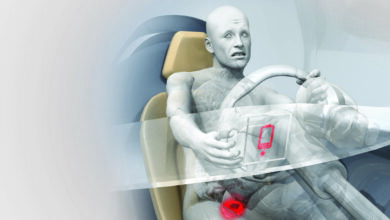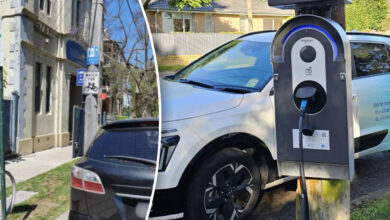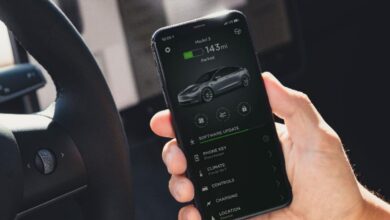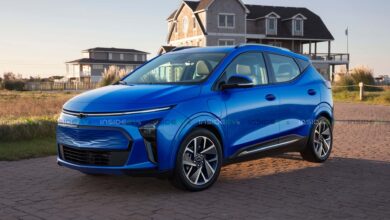EVgo’s Autocharge+ expansion threatens Tesla’s Superchargers
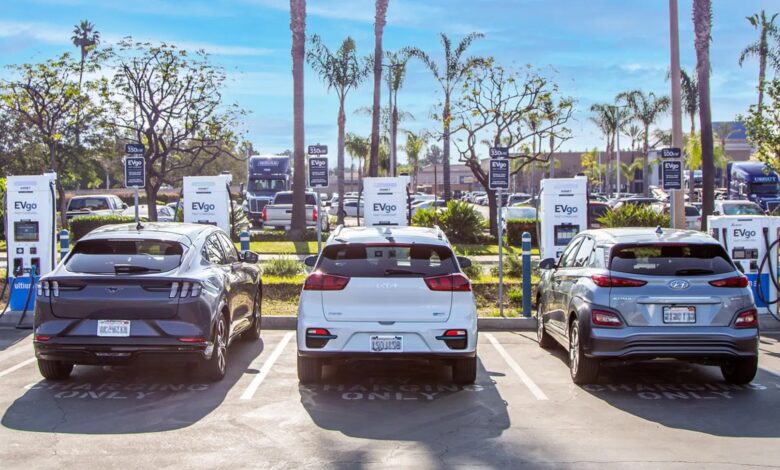
EVgo is no Tesla Supercharger network…at least not yet. But between its switch to NACS and its Autocharge+ feature, the third-party company has a shot at building a dominant charging network for electric vehicles — even taking on Tesla’s Supercharger dominance.
In a press release, EVgo announced that Autocharge+, the feature that provides plug-and-charge (and pay) compatibility between a range of EVs and the company’s chargers, is now expanding to include over 50 electric vehicles. Once signed up, you’ll be able to simply pull up and start charging without an app or swiping a credit card. The entire charging and payment system is integrated and automated.
Stacey Stewart, SVP of Charging at EVgo, said in a statement that the Autocharge+ feature offers EV owners with any model “a convenient, streamlined charging experience.”
“The key to achieving widespread EV adoption in the U.S. is giving EV drivers a convenient, streamlined charging experience, and Autocharge+ does just that. Through our collaboration with automakers and ongoing interoperability testing with new and existing EV models, EVgo continues to enhance the customer experience across the network for everyone – no matter which EV model they choose to drive.”
EVgo says that since the Autocharge+ feature launched in September of 2022, the percentage of charging sessions using the feature has nearly doubled. The company says that almost 20% of charging sessions at its chargers were initiated using Autocharge+ in the fourth quarter of 2023.
Since its launch in September 2022, Autocharge+ has steadily grown across the EVgo network – and in 2023 alone, the percentage of charging sessions initiated using Autocharge+ nearly doubled, reaching approximately 17% of all charging sessions initiated in the fourth quarter. Most EVs with CCS connectors support this feature as well as Tesla models that are compatible with the CCS Combo 1 Adapter. Additionally, EVgo plans to support Autocharge+ through its integrated NACS connectors once implemented across the network.
The list of EV models now compatible with Autocharge+ is below:
| Acura ZDX | Kia EV6, EV9, Niro, and Soul |
| Cadillac LYRIQ | Lexus RZ 450e |
| Chevrolet Blazer, Bolt EV/EUV, Equinox, Silverado, and Spark | Mercedes EQE Sedan, EQE SUV, EQS Sedan, EQS SUV, EQB, EQG, and GLE |
| Energica Experia, Eva Ribelle, Ego, EsseEsse9 | Nissan ARIYA |
| Ford Mach-E, F-150 Lightning, E-Transit, and Focus | Polestar 2, 3, and 4 |
| Genesis GV60, GV70 and G80 Electrified | Subaru Solterra |
| GMC Hummer EV SUV and Pickup | Tesla Model X, Y, S, and 3 (with the Tesla CCS Combo 1 Adapter) |
| Honda Prologue and Clarity | Toyota bZ4x |
| Hyundai Ioniq, Ioniq 5, Ioniq 6 and Kona | Volvo C40 and XC40 Recharge |
| Jaguar I-PACE |
EVgo has a chance to challenge Tesla’s dominance
This expansion of the Autocharge+ feature to a ton more brands and models shows that the company has built a pretty impressive piece of technology. Integration between systems is never easy, so to see so many brands signing on to use the feature is an impressive feat.
Seeing such an expansion makes me wonder what the future of EV charging looks like and, with Tesla obviously having the dominant charging network right now, who might take a commanding number two spot. With the technology and partnerships that EVgo has going for it, I think the company has a shot at just that.
Who knows what EV charging will look like in a decade, but this company has traction to seriously challenge Tesla for the charging market in the United States.
